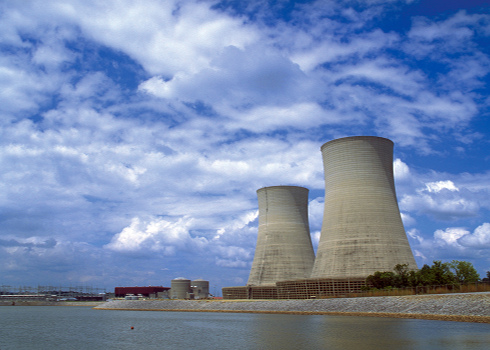A recently implemented American-Russian nuclear agreement will pave the way for joint energy projects around the world — including the transport of nuclear waste to cash-hungry Russia.
The pact, called a 123 Agreement, was implemented without Congressional approval. Originally signed by President George W. Bush in 2008, the U.S.-Russian treaty was subsequently withdrawn following the outbreak of Russian-Georgian hostilities the same year. The Obama administration re-submitted the agreement in 2010 as part of an initiative to improve U.S.-Russian relations.
While the U.S.-Russia 123 Agreement handles a variety of civilian nuclear projects, the most interesting aspect of the treaty is the new markets opened up to American energy firms. The provisions of the agreement ease the barriers for both technical and commercial collaboration in Russia, the United States and third countries around the world. And, American companies will also be permitted to sell nuclear material and equipment to Russia. Micah Zenko, a conflict resolution fellow at the Council on Foreign Relations, told TPM that the agreement “clears the constraints as found in the Atomic Energy Act of 1954, so U.S. and Russian firms can begin exploring joint civilian nuclear cooperation.”
According to Matthew Rojansky, Deputy Director of the Russia and Eurasia Program at the Carnegie Endowment, although the short-term effects of the agreement are primarily diplomatic and political, it opens the way to Russian energy companies doing civilian energy work in the United States and more. He told TPM that “In a few years’ time, over the next decade, and beyond it is likely that the U.S. and Russia will be able to cooperate much more extensively in a number of areas: supplying unmet demand for enriched uranium reactor fuel for U.S. reactors, building new enrichment facilities in the U.S. which take advantage of advanced Russian enrichment technology,and exporting spent fuel to Russia for storage and reprocessing.”
Rojansky added, “It will also be possible for U,S. and Russian companies to jointly bid on peaceful nuclear projects in third countries, e.g. in Asia and the Middle East, ensuring control over the fuel cycle and strict non-proliferation standards.”
The export of spent fuel to Russia, under the treaty, opens a vast new area of potential profit for American companies. Kim Iskyan, a director at the Eurasia Group consulting firm, noted that this 123 Treaty might help solve “[struggles] with nuclear waste fuel management […] Russia has positioned itself as a repository for nuclear waste, and under the terms of the 123 Agreement, U.S. companies may be able to send nuclear waste to Russia for reprocessing and storage.”
Additional 123 Agreements are currently being negotiated with Jordan and Vietnam following the recent completion of a similar agreement with the United Arab Emirates. Rep. Ileana Ros-Lehtinen (R-FL), head of the House Committee on Foreign Affairs, has criticized the U.S.-Russian pact and plans to introduce legislation that would require Congressional approval for all future 123 Agreements.






